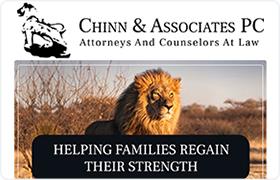Ridgeland Divorce & Family Law Lawyer, Mississippi
Sponsored Law Firm
-
 x
x

Click For More Info:
-
Chinn & Associates, PC
4316 Old Canton Road Suite 200-A Jackson, MS 39211» view mapDivorce & Family Law Helping Families Regain Their Strength
Our family law firm is focused on empowering people in Mississippi to lead the lives that they deserve to lead. We help families navigate through family law issues.
800-956-2360
Derek L. Hall
✓ VERIFIEDAccident & Injury, Car Accident, Military, Divorce & Family Law
Your problems are our problems. Our job is to educate, assist and obtain the results you deserve.
Serious injuries, car wrecks, disability, divorce, custody, arrested on serious criminal charges, can be an overwhelming time in a person or a family'... (more)
Benny McCalip May
Divorce & Family Law, Bad Faith Insurance, Products Liability, Personal Injury
Status: In Good Standing
FREE CONSULTATION
CONTACTChristopher G. Henderson
Family Law, Medical Malpractice, Construction, Professional Malpractice
Status: In Good Standing
Morgan Si Bondurant
Real Estate, Dispute Resolution, Energy, Family Law, Business
Status: In Good Standing Licensed: 50 Years
Richard Allen Rehfeldt
Landlord-Tenant, Divorce & Family Law, Felony, Criminal
Status: In Good Standing Licensed: 46 Years
 Mark Chinn Jackson, MS
Mark Chinn Jackson, MS Practice AreasExpertise
Practice AreasExpertise

